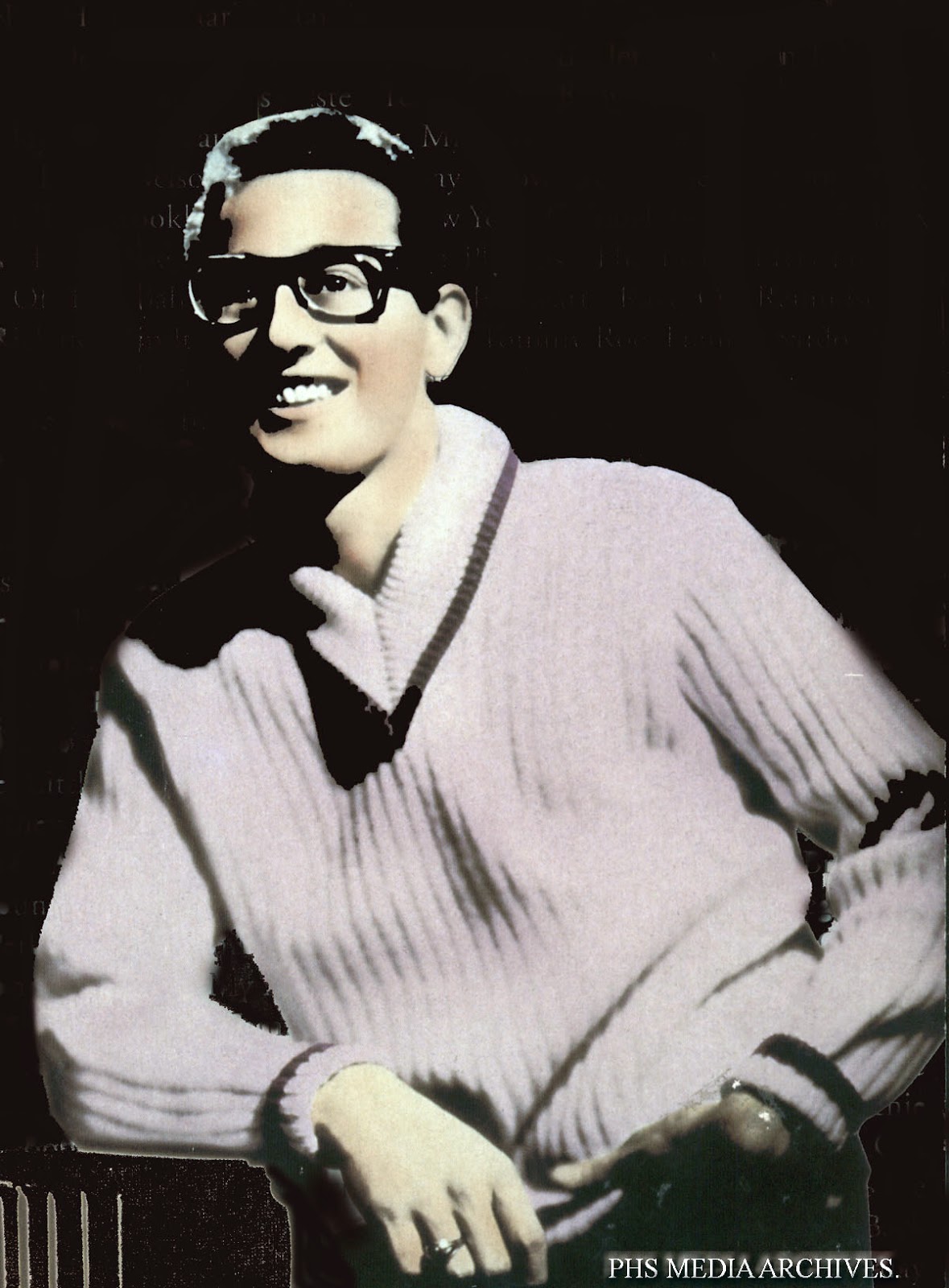

However, the rest of the group didn't agree, causing Holly to leave the group. Feeling that The Crickets could produce their own music, Holly broke relations with Petty. Two more releases made the US Top 40 that Summer, "Think It Over" (#27) and "Early In The Morning" (#32), but internal strife was tearing the band apart. Newly married Buddy became displeased with his friends' rowdiness, and producer Norman Petty made no secret of his displeasure at the marriage, even suggesting that Maria Elena masquerade as the Crickets' secretary to avoid alienating female fans. After their wedding in August, the relationship between Buddy and the other Crickets began to disintegrate. Within days, Buddy (who had, ironically recorded "Take Your Time" not six months before) had asked her to marry him. At the receptionists' desk was pretty Maria Elena Santiago and according to legend, it took Buddy less than thirty seconds to ask her for a date. One day in July, Buddy stopped by his publishers' office in New York to discuss some business. By the Spring of '58, The Crickets began to have a little trouble making another big hit, as "Rave On" could climb no higher than #37 on the Billboard chart. Although at first the band was booed, by their third day performing, they had become accepted. Once, they were even mistaken for a Black group and booked to perform at the Apollo Theater for a mostly Black audience.

Holly and the Crickets entered areas of music such as Rhythm And Blues, which until then, had been exclusive to Black artists. Ed also interviewed Buddy on the air, giving Americans their first taste of his amazing West Texas accent. The Crickets toured extensively in the States, Australia and England and in December 1957, American television audiences got their first look at their new four-eyed idol when the Crickets sang "That'll Be The Day" and their new hit, "Peggy Sue" (#3) on The Ed Sullivan Show. Both recordings were made with the help of a seldom credited vocal group called The Picks, who were John Pickering, Bill Pickering and Bob Lapham. As the Crickets did not sing, backing vocals for the record were provided by Gary and Ramona Tollet.Īs Buddy Holly And The Crickets, the band continued their success with "Oh Boy!" (#10) and "Maybe Baby" (#17). This time, they had chosen the right material and by August, the group had the number one song in the nation. The group was signed to Decca's subsidiary, Brunswick and "That'll Be The Day" was released in June of the same year. The February, 1957 sessions included a song called "That'll Be The Day", which caught Decca's attention once again. The next set of demo records Buddy made were with producer Norman Petty of NorVaJak Studios in Clovis, New Mexico. Buddy was the group's guitarist and vocalist and was accompanied by Jerry Allison on drums, Niki Sullivan on guitar and Joe Mauldin on bass. Holly followed the advice and with the help of some friends, formed his own band, The Crickets. Neither record sold well and Decca brass advised him to return to Lubbock and keep working on his music. He signed it, even though to his chagrin, the contract left out his friend Bob, and misspelled his name as "Holly" (no 'e').īuddy recorded a number of songs for Decca during 1956, of which "Blue Days, Black Nights" and "Modern Don Juan", were released. From this, in early 1956, came Buddy's first recording contract offer. Eddie Crandall, the booking agent who arranged for their appearance with Bill Haley, liked Buddy enough to send some of his demos to Decca Records.


The boys opened for the likes of Elvis Presley, Marty Robbins and Bill Haley at local shows. The two became very popular in Lubbock and eventually landed their own half-hour radio show on KDAV-AM. By age 13, Buddy and his friend Bob Montgomery were playing a kind of music they called Western Bop, as well as mainstream Country songs which they performed at local clubs. As a child, he learned to play the violin and the piano, but soon discovered a preference for the guitar. Charles Hardin Holley was born in Lubbock, Texas on September 7 th, 1936, to Laurence and Ella Holley.


 0 kommentar(er)
0 kommentar(er)
